Want some cancer insurance with that Big Gulp?
Soon people will be able to buy life insurance at Seven-Eleven… in Japan.
Talk about convenience!
According to a report in the Kyodo News, Seven-Eleven Japan Co. said Monday it will start selling life insurance at its over 20,000 outlets in Japan, the first such case at a convenience store, as the need for contactless sales grow due to the new coronavirus pandemic.
Japan’s largest convenience store chain will start selling cancer insurance from Mitsui Sumitomo Aioi Life Insurance Co. (MS&AD) on June 16 in an effort to expand its sales channels at a time when the coronavirus has made it difficult for agents to visit homes or meet customers in person.
A customer can apply for the cancer insurance through a multi-function copier machine/vending machine installed at Seven-Eleven outlets and also pay for it at the store’s cashier.
Seven-Eleven and MS&AD are planning to set up call centers where licensed insurance sales staff can talk to customers 24 hours a day, 365 days a year, to ensure the same quality of services offered by insurance shops.
Customers can also complete most of the process beforehand by using a smartphone or PC and preregistering online.
Seven-Eleven said it hopes to achieve 60,000 new subscribers per year, mostly elderly, to the insurance plans with a minimum monthly premium of 995 yen, or about $9.20, while another report said the monthly insurance fee will be set at several thousand yen.
As Barron’s notes, Japan has a history of retail innovation, and has one of the highest penetration rates of vending machines in the world (there are apparently more vending machines in Japan, about 5 million, than there are in the U.S., which has about 4.6 million). The population of Japan is about 127 million, while some 330 million people live in the U.S.
In Japan, people can purchase socks, beetles, and origami, among other products from vending machines, Barron’s says. “Now, they can also get a decision about life insurance from ‘multifunction machines’ inside stores.”
Will it someday translate to convenience stores in the U.S.? Perhaps, if the program is successful.

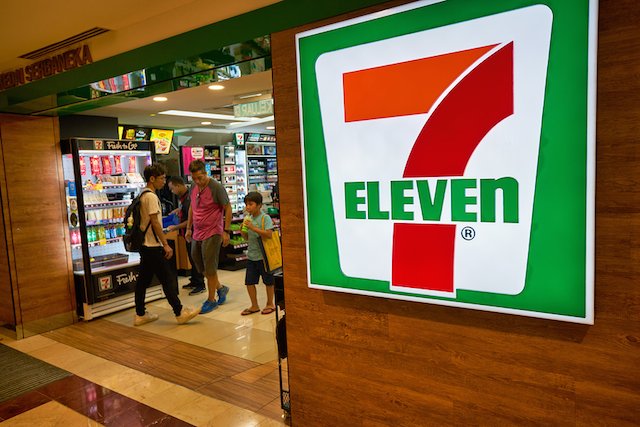
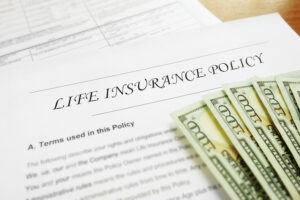
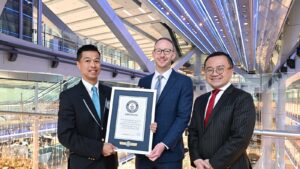





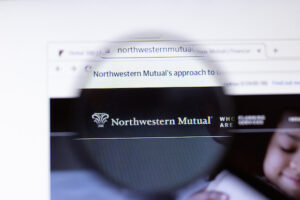

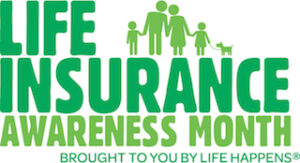


I love it: 7/11 to “start selling cancer insurance from Mitsui Sumitomo Aioi Life Insurance Co. ”
Can I get you a Cancer Policy with that Slurpee?
How fitting.
And now it all goes sideways. :yes:
Value added:
Would you really want to get your insurance from the same place you just bought a slurpee?:unsure:
And… how safe do you feel procuring your coverage from a place that gets robbed all the time?:err:
Then again… look at our world at the moment… who knows!?! :wacko:
Hey Costco sells one with Protective I believe. It is actually a pretty good policy. Me personally I get most of my insurance through Dunkin Doughnuts. I hear they are great with diabetics!
Had a frozen chocolate drink there just yesterday with a friend… I pulled up thinking we could order inside… nope, so he and I walked through the drive thru to order :yes:…first for me. It was marvelous…:v_SPIN:
…pardon me for a moment… I need to turn up my pump a little. 😉
So now one can go to 7-11 and get a life
Who knew
The article says that you can also get cancer.
Oh well easy come easy go
Get a Slurpee, a $7 candy bar, some cancer insurance, then go around back for some meth.
so there is some method to the madness
Would be better buying a lottery ticket 🙂
Maybe, but you can't slurp a lottery ticket… and even if you did, it wouldn't change the color of your tongue. :laugh:
What's next? Car washes. You pay for your car wash and policy when you enter the machine. When you come out they wipe down your car and give you your policy. Off you go. Oh, I hope they didn't wipe the car with the policy.
So 400lb guy goes and asks for life insurance, gets denied but gets a slurpie instead. Thats OK. The next guy is getting divorce, his lawyer tells him to get one. He goes into Seven !! looking for the cheapest one he can buy. That is also good for 7-11. WHo else is left in the life insurance world for 7-11? I am feeling stressed if this spreads into USA.
Lol. Safe contactless touching screens at a 711 & then standing in line touching the counter & paying cashier that has cleaned toilets, cooked hit dogs & nacho cheese & touched 3k worth of dollar bills, change & EBT cards is more healthy contact than buying over phone or online with an agent or in your own home with a singular agent
Free slurpee with every policy.
Buy a 7-11 franchise if you want to stay in the life insurance business.
:yes:
Reminds me of those insurance kiosks you used to see at the airport where you could buy life insurance for your next flight.
Maybe 7-11 is taking a similar angle…before you eat one of our hotdogs, wouldn’t you like to make sure you’re covered…
If most of the confusing language is removed from a policy and the company gets info from an MIB, what would be the drawback to a self serve policy other than taking agents out of the loop? To me this is not much different than a kiosk in a Walgreens or Costco selling MA plans. Unfortunately many people feel they are just too busy to sit down and answer questions from one of us but they want coverage none the less. They respond to Colonial Penn ads or send in a card but want to fill out an application when they get around to it. We should place kiosks in DMV's since most people will be there for at least an hour
If many of the complicated language is eliminated from the business and a policy gets details from an MIB, what would be the disadvantage to a self serve policy other than taking representatives out of the loop? They react to Colonial Penn advertisements or send out in a card however desire to fill out an application when they get around to it.